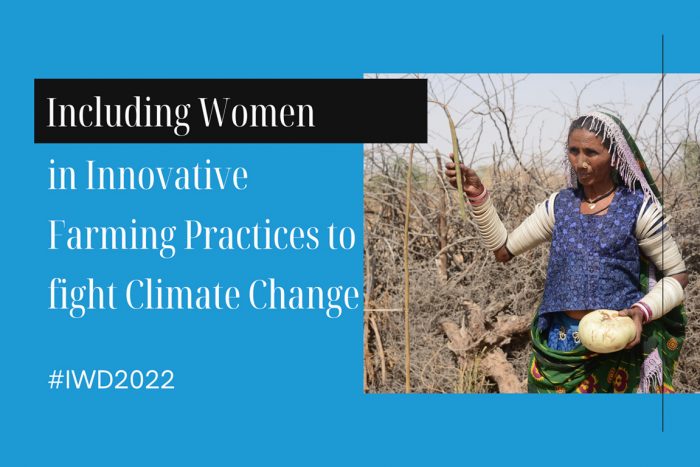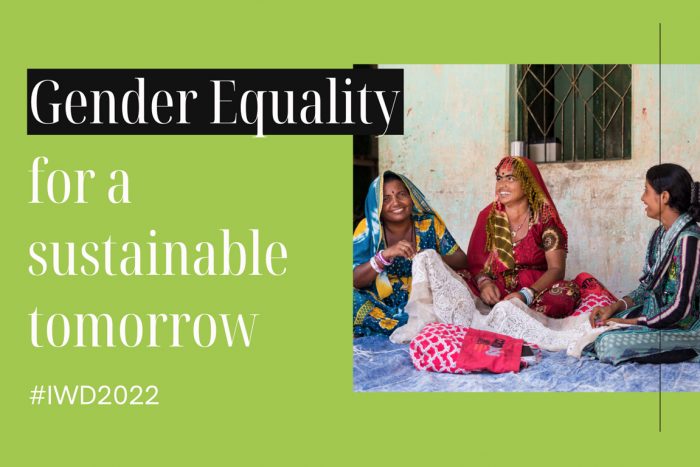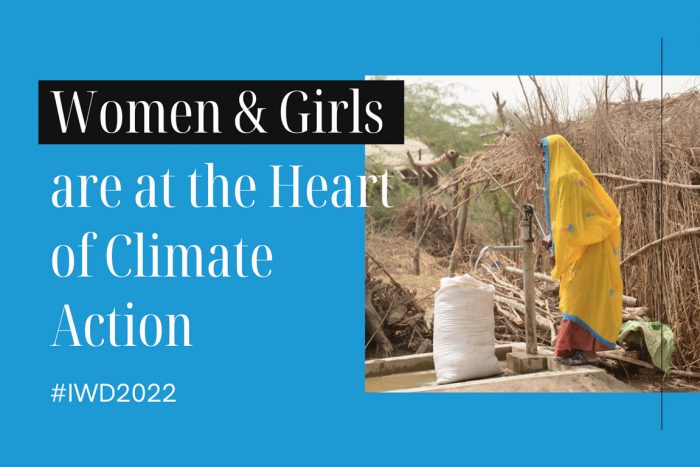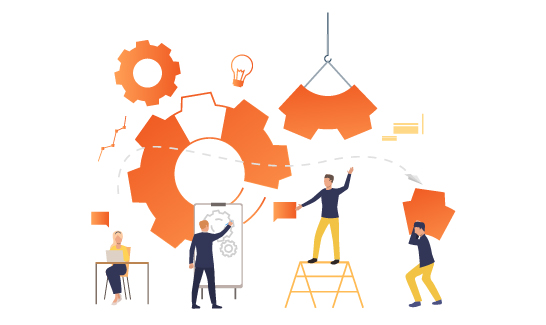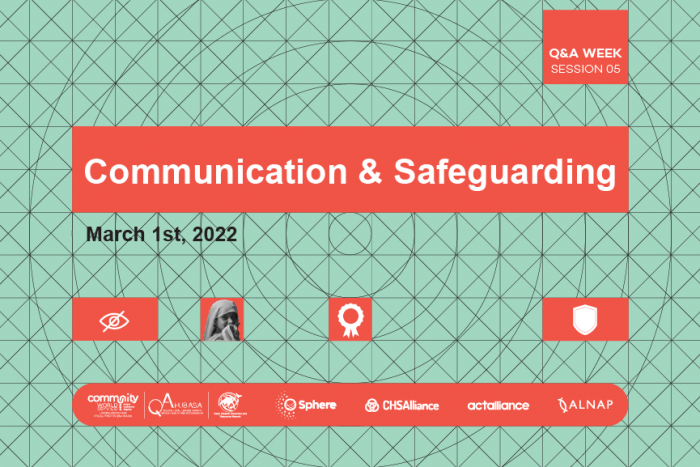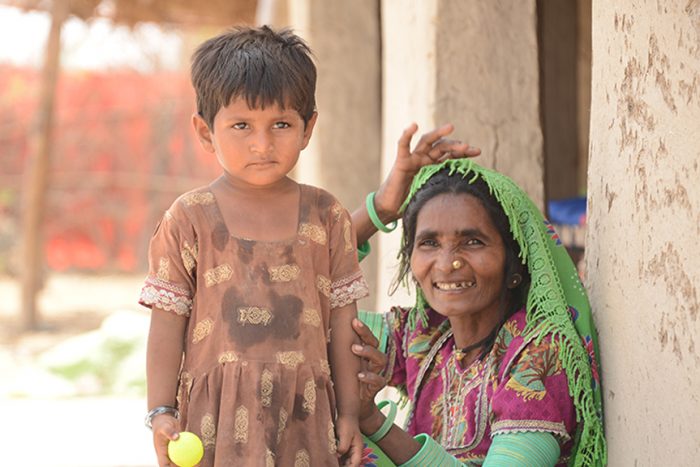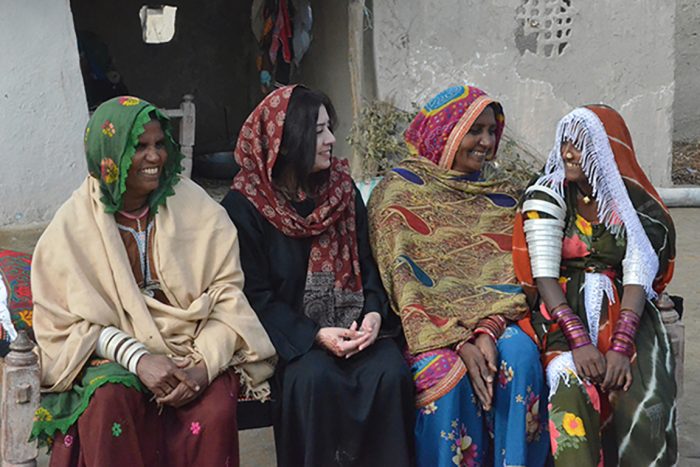Community World Service Asia is supporting local and provincial education programs in promoting sustainable quality education for both boys and girls in various parts of the region. One of its programs focuses on ensuring quality education in Umerkot and is implemented in collaboration with government bodies, school management committees, teachers, the local communities and other relevant stakeholders. Despite the various obstacles experienced in the operational environment owing to COVID-19, CWSA continued to provide educational opportunities for underserved communities in Umerkot. By increasing the quality of education and eliminating the literacy gap between boy and girl students and empowering women and girls, CWSA strives to provide inclusive and equitable quality education and gender equality.
Yearly Archives: 2022
Including Women in Innovative Farming Practices to fight Climate Change
International Women’s Day (IWD) is a time to reflect on progress made, to call for change and to celebrate acts of courage and determination by ordinary women, who have played an extraordinary role in combatting climate change in their communities.
Hear from women who inspire, engage and advocate for change, resilience and sustainability by committing themselves to accelerating the pace of change and contributing to a more sustainable future for all.
IWD #SDGs #TheRoad2Equality
Gender Equality for a sustainable tomorrow
We are recognizing the contribution of women around the world, who are leading the charge to build a more sustainable future for their families and communities. Meet Atyaan & Kamla who are changing their lives and the lives of their loved ones through engaging in sustainable livelihood activities that are leading to their economic empowerment.
Without gender equality today, a sustainable future, and an equal future, remains beyond our reach.
IWD2022 #TheRoad2Equality
Women & Girls are at the Heart of Climate Action
The year 2022 is critical for achieving gender equality in the context of climate change, environmental and disaster risk reduction, which are some of the major global challenges of the twenty-first century. Without gender equality now, we would be unable to achieve a sustainable and equal future.
Today on International Women’s Day, let us be equally part of the solution towards a sustainable future.
IWD2022 #TheRoad2Equality
Training on: Organization and People Management
When: 28th– 30th March 2022
Where: Murree, Punjab
Language: Urdu and English
Interested Applicants: Click here to register
Last Date to Apply: 18th March 2022 (incomplete applications will not be entertained)
Training Objectives: Through this training, you will be able to:
- Identify any gaps between the dynamics of your organisation and targets you desire to achieve in given circumstances
- Understand your leadership and management style in order to become more self-aware about your unique strengths and how you can overcome the challenges you face by improving your leadership and management competencies
- Learn skills and tools to foster a healthy organisational culture that nurtures talent, celebrates diversity and guides performance
- Enhance your capacity to communicate purposefully and with a vision for improved team functioning
- Develop innovative tactics to envision, plan and implement organisational change
Background: With changing global trends, the dynamics of organisational and people management have also changed. Traditional methods are becoming obsolete and new trends are emerging with every passing day. Effective managerial skills now aim to improve the individuals’ performance and skills in organisational setting with a focus on the 5 Cs: Clarity, Context, Courage, Commitment and Consistency. Competent. A well-managed staff is the heart of an accountable and effective organisation; therefore, they need to be equipped with the right skills and behaviours. The need for staff development, coaching and mentoring is key to optimising maximum productivity.
This training aims to enhance participants’ leadership skills and promote their professional growth resulting in strong institutions. Through this training, you will learn best leadership and management style to engineer change and innovation in your organisation. By the end of this training, you will also further strengthen your knowledge, skills and behaviours to handle interpersonal conflict, manage deadlines, build a healthy organisational culture, lead employee trainings, solve problems, and manage feedback.
Number of Participants
- A maximum of 20 participants will be selected for the training. Women and staff belonging to ethnic/religious minorities are encouraged to apply. Preference will be given to participants representing organizations working in remote and under-served areas.
Selection Criteria
- Participant’s organization should be registered with its respective provincial Social Welfare Department
- Participant is in a mid/senior for leadership role working in a local/national NGO with primary responsibility of organization/people management
- Participants from women led organisations, different abled persons, minority groups will be given preference
- Commitment to apply learning in their work, including dissemination of learning within their organisation
Fee Details
- Training fee for each participant is PKR 10,000. Fee concessions and scholarships are available for participants belonging marginalised groups and NGOs with limited funding.
- No TA/DA will be given to participants and travel expenses will be incurred by participants themselves.
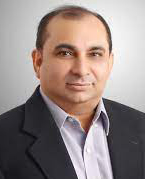 Facilitator/Lead Trainer: Mr. Sohail Muhammad Ali is a high-performing research and capacity-building specialist and trainer with expertise in research, training and development to maximize human resource outputs in social development and education sectors. He is a respected & proven advisor to non-government organisations, and has played an active role in providing guidance on research and development functions to promote and innovative solutions to social developmental challenges. He is an influential and inspirational leader with excellent human capital development skills.
Facilitator/Lead Trainer: Mr. Sohail Muhammad Ali is a high-performing research and capacity-building specialist and trainer with expertise in research, training and development to maximize human resource outputs in social development and education sectors. He is a respected & proven advisor to non-government organisations, and has played an active role in providing guidance on research and development functions to promote and innovative solutions to social developmental challenges. He is an influential and inspirational leader with excellent human capital development skills.
Mr. Sohail has the experience of working in South Asia, Africa and Europe. He has conducted professional development workshops and capacity building sessions. He has served as a national and international consultant for organizations including Leonard Cheshire (LC) UK, World Bank, USAID, Care international, UNICEF, Aga Khan Rural Support Program (AKRSP), Academy for Educational Development (AED), Aga Khan Foundation (AKF), Transparency International, Lead Pakistan, British Council Pakistan, Human Resource Development Network (HRDN), and others.
Community World Service Asia (CWSA) is a humanitarian and development organization, registered in Pakistan, head- quartered in Karachi and implementing initiatives throughout Asia. CWSA is member of the Core Humanitarian Standard (CHS) Alliance, a member of Sphere and their regional partner in Asia and also manages the ADRRN Quality & Accountability Hub in Asia.
Localisation: What does it mean?
Communication & Safeguarding
Format: Webinar: Presentation & Discussion
When: 1st March 2022
Time: 2.00 pm (PST)
Where: zoom – linked to be shared
Register: here
Language: English
Duration: 60 minutes
Presenter: Ms. Ester Dross
For: Safeguarding focal points, senior managers of national, international and regional NGOs and networks
Background:
Community World Service Asia (CWSA) is a humanitarian and development organisation registered in Pakistan, addressing factors that divide people by promoting inclusiveness, shared values, diversity, and interdépendance. CWSA is highly committed towards people centered aid and Accountability to Affected People. Over the last two years, we have offered different webinars, covering various aspects of safeguardbing and aiming to raise more awareness on key aspects of accountability, such as establishing efficient and transparent complaints systems and protection from and prevention of sexual exploitation, abuse and harassment (PSEAH). Safeguarding is a key pillar to any accountability measures that organisations must integrate into their programmes and working cycle.
When people we work with or for, feel unsafe within their workspace or global environment, this has critical negative impacts on the quality of our work and the objectives we intend to reach. It is therefore important that we are more aware and increase our efforts for a better understanding of the issues at hand.
This webinar is part of a series of 6 virtual learning events, covering safeguarding, key policies and minimum requirements, Complaints systems, Complaints handling and Managing investigations and Communication. The last webinar will be dedicated to experience sharing and best practices. We have so far spoken generally about safeguarding and how three different organisations developed and set up their safeguarding framework, followed by an interactive session where participants explored the key policies and guidelines they need to have in place in terms of safeguarding. During our third webinar, we tried to understand what we need to ensure in order to set up robust complaints systems and allow all stakeholders to have a voice and report any concern they have when benefitting from activities of or working with our organisations. The last time we met, we also talked about understanding fair and independent investigation processes, looking at them through three different perspectives; that of organisations, investigators and survivors.
Objectives:
At our fifth webinar, scheduled for the 1st March 2022, we want to try and better understand how we can ensure an inclusive and thorough communication with regards to safeguarding, complaints handling and investigations.
This webinar will explore:
- The communication tools and platforms required to ensure complete understanding of safeguarding and all related processes among affected communities
- How we can contextualize this communication
- What we need to communicate and to whom when it comes to complaints handling and outcomes of an investigation
Moderator & Presenter:
Ester Dross—Independent Consultant
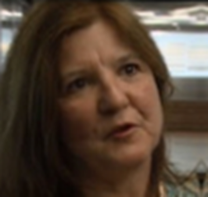
Ms. Dross is an indépendant consultant with over 25 years of expérience, specializing in accountability, prevention of sexual exploitation and abuse, gender and child protection. Ms. Dross has had an extensive exposure to humanitarian certification systems and accountability to affected populations while working with HAP International as their Complaints Handling and Investigation Advisor, later as their Certification Manager. She has been closely involved in the Building Safer Organisations Project since 2005, dealing with sexual exploitation and abuse of bénéficiaires, particularly focusing on gender and child protection. Over the last 6 years and since working as an independent consultant, Ester has been leading a pilot projet for FAO on accountability and gender mainstreaming in emergencies and working with numerous NGOs including ACT Alliance members, supporting and training their staff on gender issues, child protection.
Upholding Humanitarian Standards: A bridge between theory and practice – Identifying specific issues and exploring their resolutions
Follow the Learning Journey on Quality, Accountability and Safeguarding
Virtual Learning Session I: LEARN
Virtual Learning Session II: UPDATE
Virtual Learning Session III: PANEL
The fourth Virtual Learning Session, as part of the Learning Journey on Quality, Accountability and Safeguarding, was conducted on February 10, 2022. The session, designed and facilitated by Sylvie Robert, gave participants an opportunity to initiate bilateral work, through digging into concrete and focused aspects for improvement and upholding quality and accountability standards.
What can be done practically and how?
“This session will focus on how we will design our improvement plans. Additional coaching support will be provided to those individuals or organisations who are willing to receive it. The coaching will aim at designing and/or refining the improvement plans of the concerned organisation and monitor its implementation. In the group activity today, you will discuss how you wish to do this, which mechanisms need to be adopted or improved and what actions and activities will take place,” shared Sylvie. The improvement plans will be shared with concerned management and organisations to ensure coherency through their implementation.
38 humanitarian and development practitioners from Asia, Africa and the Middle East participated in the 4th Virtual Learning Session ‘CLINIC’.
Establishing concrete strategies to put the Standards into ACTION!
Key Take-Aways
“It is critical to come up with practical measures to set the standards in countries facing comparable challenges to Syria, since there are technological challenges such as shortage of energy, internet access, telephone and other restricted resources.
Additionally, tangible ways to assist individuals on the ground living in restrictive environments must be identified, where the humanitarian mission may conflict with culture. Individuals’ personal status is affected by these contradictory conditions, necessitating psychological assistance.
Techniques for approaching at-risk populations, including children, youth, elderly, women, and other vulnerable groups, must be identified in order to encourage communities to share their concerns and risks without hesitancy. In addition, we must develop strategies to increase community trust in complaint processes relating to privacy and security of personal information, as well as educate personnel to respond efficiently and timely.
During project interventions, staff capacity needs to be built in conducting interviews, surveys, and evaluations. Integration and coordination with government agencies and local governments are also important. It is vital to raise awareness among senior management in organisations about the need of understanding these standards and their application tools as a logical aspect of the mission in achieving these standards at community and organisational level.”
P. J. from Syria
“The key priorities highlighted in the discussion included improvements to complaint processes, refined code of conduct, improved accessibility to work with the affected population, and increasing the capacities of both humanitarian staff and communities.
Organisation are constantly working to improve safeguarding and establish policies and guidelines that are based on the Core Humanitarian Standard. Furthermore, organisations are striving to enhance accountability to the affected population. However, staff and community competence on techniques and tools used to ensure quality, accountability, and safeguarding is crucial. These sessions provided valuable insights into the various contexts that exist throughout the regions, as well as expanded knowledge through the exchange of best practises and experiences.
A member in the group emphasised the need of improving the complaint system and improve its functionality for communities to access it openly and without hesitation. Moreover, policies and guidelines need to be established to cover all aspects of safeguarding including gender, diversity, protection, code of conduct and PSEA. These principles must also be communicated to communities in their native languages for communities to know what the organisation is obliged to do for them.”
N. Y. from Afghanistan
“We have prioritised the improvement in the complaint handling mechanisms. Having an effective complaint handling procedure in place ensures that your organisation is ready to overcome difficult situations, which benefits both the humanitarian practitioners and communities. It is also critical to have clear policies and procedures in place for complaint systems and how to use them effectively and efficiently.
Furthermore, our conversation led to prioritisation of the need to increase community capacity in using complaint mechanisms on the ground. To strengthen their voice and influence, communities must be aware of complaint procedures and accessibility options. This will promote community empowerment and involvement in programme decisions that directly impact them.
A well-written code of conduct clarifies an organisation’s mission, values and principles, linking them with the standards. It is equally important to revise the code of conduct reflecting the context and standards from time to time. The reviewed and amended code of conduct can then be provided to all staff and any additional training can be delivered for better understanding and implementation.”
J. P. from Korea
Follow our Twitter Handle @communitywsasia for Live Updates from this Learning Journey
Upholding Humanitarian Standards: Considering Collectively Key Topics Related to Quality & Accountability Standards through the Project Life
Follow the Learning Journey on Quality, Accountability and Safeguarding
Update on Virtual Learning Session I: LEARN
Update on Virtual Learning Session II: UPDATE
As part of this Learning Journey on Quality, Accountability and Safeguarding, Sylvie Robert designed and facilitated a panel discussion on topics inter-connected with the quality and accountability Standards’ application through the project life.
This session combined highly committed panelists and field practitioners to exchange view and experiences on a wide range of key topics spanning the project life such as: The Do No Harm approach, building local capacities, empowerment, localisation and equitable partnerships, ethics and principles in emergencies, two-way communication mechanisms, community engagement, gender and empowerment and finally, Standards’ verifications options.
53 humanitarian and development practitioners from Asia, Africa and the Middle East participated in the 3rd Virtual Learning Session ‘PANEL’.
Applying ethics & principles in emergencies:
Codes of Conduct, Complaints and Feedback Mechanisms, including PSEAH
“The humanitarian movement is a universal movement with a lot of disparity and diversity. To meet the challenges faced by local actors on the ground, organisations must adopt a simple, up-to-date, communicative code of conduct based on universal principles. Furthermore, organisations must have a mechanism in place to ensure that the code of conduct is followed at all levels. There must be complaints procedures in place for this to happen. The method for collecting complaints must be responsive, transparent, protective, independent and impartial.”
Philippe Dureau, Dorcas
Localisation and equitable partnerships through the Nexus: Can we avoid sub-contracting only?
“Localisation should not be generalised; we need to be very context specific and understand the challenges and successes that the local actors are reaching every day. In addition, localisation is not only limited to the emergency context, but also applies during the humanitarian and the longer term, through the ‘Nexus’. Moreover, localisation is a shared responsibility between the local actors and the donor agencies. Therefore, it is important for both parties to build strong and meaningful partnerships, be active in collective advocacy and promote unified coalition.”
Eman Ismail, ICVA MENA
Do No Harm & Do Some Good: The importance of context analysis from upfront!
“Commitment 3 of CHS says Humanitarian response strengthens local capacities and avoids negative effects. Do No Harm is about unintended negative effects of our work on community and conflict dynamics. It is also about how we approach the people we work with in terms of respect, fairness, accountability and transparency. It is crucial to know the dynamics of the communities and region we are working in, and other context details. It can be difficult to get this kind of information but we need to look beyond the needs assessments that we are doing. We need to know much more about the environment, who else is living there and who are the different stakeholders involved. Staff and partners are often good sources of information.”
Corita Corbijn, ZOA
Capacity Building and Learning – Strategies
“In order for capacity building and learning initiatives to make a difference, both at institutional and individual level, we need to provide a space for discussion and have the right balance between knowledge, skills, and attitude. The CHS is a learning journey, for organisations involved, whether international or national, as well as for the CHS Alliance. We need to nurture mutual learning space, and tend toward longer learning journeys, linking theory and practice. We see great opportunity and value into this learning series involving Syria, Afghanistan and Pakistan, and this is certainly one we can all learn from.”
Geneviève Cyvoct, CHS Alliance
The CHS verification scheme: Dreaming of a joint self-assessment led locally?
“The CHS verification is a way forward on how we can put the standards into practice. The verification is a structured and systematic process that determines how closely an organisation’s work adheres to the CHS. The verification method ensures that processes, rules, and policies are in place at the organisational level, guaranteeing that interventions are of high quality and accountable. It also ensures that such policies are followed in projects and activities on the ground. Finally, it verifies that quality and accountability measures are included in collaborative practises and tools.”
Bonaventure Sokpoh, CHS Alliance
Invaluable community engagement!
“In principle everyone agrees to involve and engage communities in the humanitarian work but when it comes to practice each context brings us new challenges. We can perform better if we know & benefit from existing tools & contextualise them based on the situation. For example, the CHS Commitment 4 that relates to community engagement puts focus on meaningful participation. It’s requirements can guide us to function responsibly. On top of this, humanitarian practitioners must prioritise the safety & dignity of communities participating in the interventions. Staff should be considerate of what, when & how to communicate with communities. We, at ACT Alliance, are CHS certified, and each audit brings us a new perspective from communities to further improve. The CHS verification is an independent process that allows organisations to know how communities feel about our work.”
Rizwan Iqbal, ACT Alliance
Gender, empowerment and inclusion: A critical aspect to all stages of our work!
“Gender is cross-cutting humanitarian quality and accountability aspects. It is essential for improvements in humanity and accountability and many of us in the development sector are working diligently to ensure that it is fully integrated. Women’s empowerment is directly linked to inclusion and participation. Women’s participation in humanitarian programmes has been prioritised, and community mechanisms have been reinforced to ensure women’s participation. It is critical to guarantee that men and women participate in formal and informal decision-making on equal footing.”
Palwashay Arbab, Community World Service Asia
ASKs: ‘Do these considerations apply in your working context? What are limitations and opportunities? What could be concrete actions for improvement?’
“In order to apply the Quality and Accountability Standards, we need to have a collective approach. In the Syrian context, increased coordination between humanitarian actors on the ground is imperative. Furthermore, a uniform reporting system is required so that greater emphasis may be placed on the impact that must be reported rather than the report’s structure. In addition, assistance is needed in mapping target regions so that responses and interventions can be more efficient and effective.”
F. K. E. from Syria
“Donors’ requirements can be overwhelming for organisations, especially for individuals who are unfamiliar with the language and concepts of accountability to affected communities. The funding framework for humanitarian efforts at the local level must be considered. In addition, integrations must be structured so that the focal person managing complaints is clear on the needs, time, and nature of the work.”
T. S. from Pakistan
“The language and the context of the Quality and Accountability Standards have to be simple in text and meaning, in order for communities to understand and relate to them easily. A group member mentioned that one of the methods to solve this challenge was to hold theatre performances in the communities based on different chapters of the Sphere Handbook 2018. As a result, the communities were able to comprehend the handbook’s criteria and connect to them in their own context. Language can be misinterpreted in the Syrian setting. We need to figure out how to get the right message to the right individuals in a practical way. In addition, in the communities with whom we work, there is apprehension about filing complaints. People are concerned with breach of confidentiality, insecurity, or a complaint not reaching to the qualified people. We have enhanced our campaigns to raise awareness on complaint methods, but there is still more work to be done in this area.”
D. J. from Syria
Follow our Twitter Handle @communitywsasia for Live Updates from this Learning Journey





